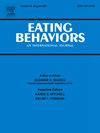身体积极社交媒体内容的感知效应及其与身体形象特质的相关性
IF 2.4
3区 医学
Q2 PSYCHIATRY
引用次数: 0
摘要
与理想化的以身体为中心的社交媒体内容相比,积极的社交媒体内容对身体形象的危害较小。然而,很少有人研究谁认为这些帖子有帮助。这是一个重要的差距,因为对此类内容持积极态度的个人更有可能参与其中,从而在他们推荐的内容中找到更多此类内容。该研究的目的是检验(1)年轻女性对身体正面社交媒体内容的反应(2)它们与身体形象维度的关联。135名女大学生完成了一项在线调查。参与者观看了两个不同的身体正面社交媒体帖子,在完成身体形象特征测量之前,每个帖子都在视觉模拟量表上表明了他们的反应。其中一篇帖子只包含文字,而另一篇则展示了一群不同的女性。调查结果显示,在各个维度和帖子中,正面和正面的反应比负面的反应更常见。然而,集体形象引发了更高的幸福感,对自己的身体满意,对自己的外表满意,以及更低的焦虑和尴尬感。相关分析表明,积极的身体形象特征指数与较高的积极反应(快乐、对自己的身体满意、对自己的外表满意)和较低的消极反应(尴尬、焦虑、对自己的身体不满意、改变外表的动机)相关,而不良的身体形象特征指数与较低的积极反应和较高的消极反应相关。研究结果表明,积极的社交媒体可能对保持积极的身体形象最有用。本文章由计算机程序翻译,如有差异,请以英文原文为准。
Perceived effects of body positive social media content and correlations with trait body image
Body positive social media content has been described as less detrimental for body image as compared to idealized body-focused social media content. However, little work has explored who finds these posts helpful. This is an important gap, as individuals who are positive towards such content are more likely to engage with it and thus find more of it in their recommended content. The aims of the study were to examine (1) reactions to body positive social media content and (2) their associations with dimensions of body image among young women. A sample of 135 undergraduate women completed an online survey. Participants viewed two different body positive social media posts and for each indicated their reactions on visual analog scales before completing measures of trait body image. One post included only text while the other featured a group of diverse women. Findings revealed that, across dimensions and posts, favorable and positive reactions were more common than negative ones. However, the group image elicited higher ratings of feeling happy, good about one's body, and ok with one's looks, and lower feelings of anxiety and embarrassment. Correlational analyses revealed trait indices of positive body image were associated with higher positive reactions to posts (happy, good about body, OK with looks) and lower negative reactions (embarrassed, anxious, bad about body, motivated to change looks), while indices of poor body image were associated with lower positive and higher negative reactions. Findings suggest body positive social media might be most useful for maintaining positive body image.
求助全文
通过发布文献求助,成功后即可免费获取论文全文。
去求助
来源期刊

Eating behaviors
Multiple-
CiteScore
4.20
自引率
3.60%
发文量
65
审稿时长
60 days
期刊介绍:
Eating Behaviors is an international peer-reviewed scientific journal publishing human research on the etiology, prevention, and treatment of obesity, binge eating, and eating disorders in adults and children. Studies related to the promotion of healthy eating patterns to treat or prevent medical conditions (e.g., hypertension, diabetes mellitus, cancer) are also acceptable. Two types of manuscripts are encouraged: (1) Descriptive studies establishing functional relationships between eating behaviors and social, cognitive, environmental, attitudinal, emotional or biochemical factors; (2) Clinical outcome research evaluating the efficacy of prevention or treatment protocols.
 求助内容:
求助内容: 应助结果提醒方式:
应助结果提醒方式:


